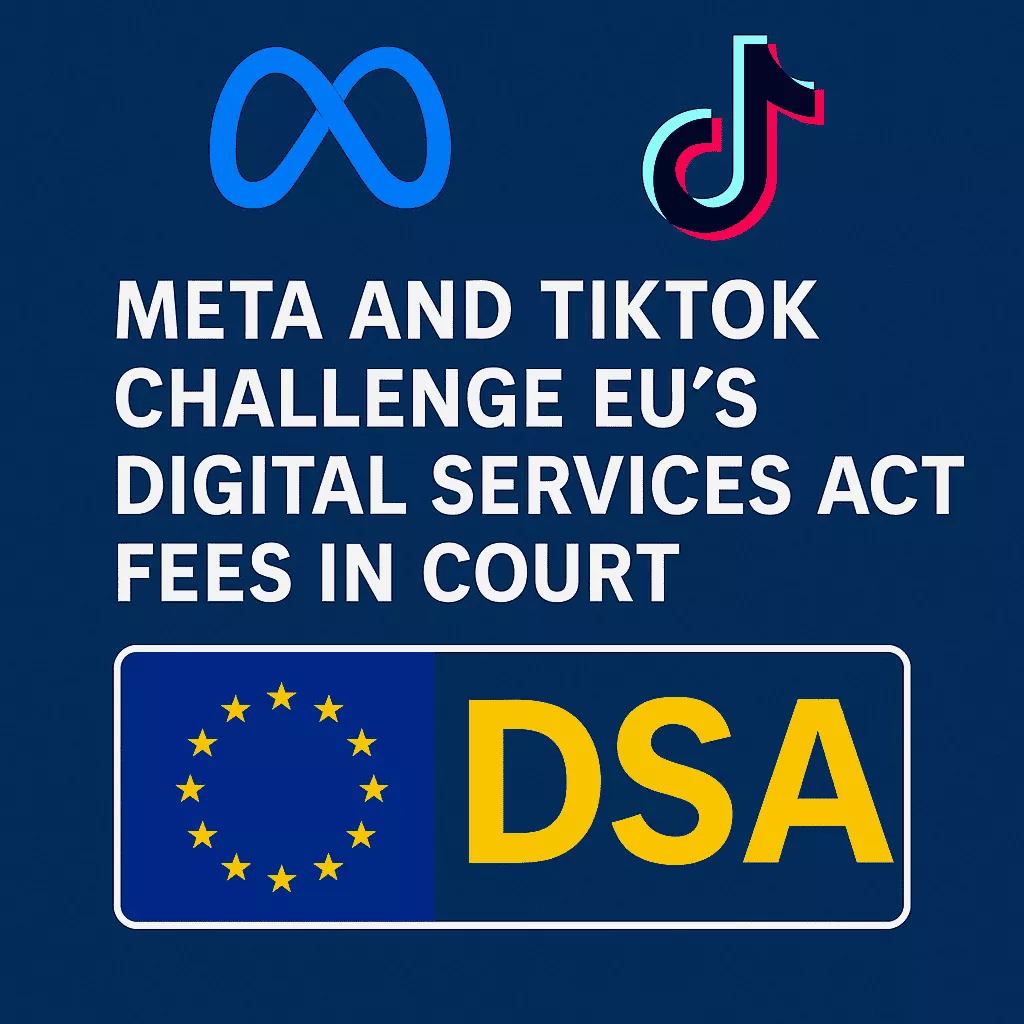Meta and TikTok are currently battling the European Union’s new Digital Services Act (DSA) fees in court — arguing that the levy is unfair, non-transparent, and places a heavy financial burden on their operations.
The General Court of the European Union is reviewing two separate cases, T-55/24 (Meta) and T-58/24 (TikTok), following complaints by both companies about the way these fees are calculated.
Table of Contents
🔹 Why Meta Is Pushing Back 🔹
Meta, the parent company of Instagram, Facebook, and WhatsApp, maintains that the EU’s formula for calculating its DSA fee is flawed. According to Meta, regulators are basing their levy on global group revenue instead of focusing exclusively on its EU operations — a move which results in much higher payments.
Additionally, Meta says there’s a lack of transparency and oversight in how the amount is determined, adding that the process disregards their financial capacity and the actual services provided within the EU.
Source: Reuters — Meta and TikTok challenge tech fees in EU’s General Court
🔹 TikTok’s Objections 🔹
TikTok raised its own set of complaints, stating that the EU’s method double-counts users who connect through multiple devices, thereby inflating its fee. The platform also argues it’s unfair for larger companies to carry a greater financial load while effectively subsidizing oversight for their less-profitable counterparts.
This controversy highlights growing tensions over the financial responsibilities placed on Big Tech companies under the Digital Services Act.
Source: Times of India — Meta, TikTok challenge EU’s big tech fee; call it unfair and disproportionate
🔹 EU Commission’s Defence 🔹
The European Commission maintains its approach is both justified and lawful. According to EU regulators:
- The consolidated group financial data reflect the true financial capacity of each company.
- The DSA’s funding mechanisms enable regulators to oversee growing digital platforms in a way that is independent and adequately resourced.
Source: Reuters
🏹 What’s Next?
This legal showdown is currently underway in the General Court of the EU, with judgments expected sometime in 2026. The outcome could redefine the financial obligations for big tech companies and set a precedent for future policy implementation in the EU.
🧭 At a Glance
| Stakeholder | Argument |
|---|---|
| Meta & TikTok | Fees are unfair, non-transparent, disproportionate, or based on flawed methodology. Marginalizes device-switching behavior and cross-subsidy concerns. |
| EU Commission | The fee structure is legal, justified by consolidated accounts, and duly communicated to platforms. |
🔹 Why This Matters 🔹
This case goes to the heart of the ongoing policy debate over Big Tech’s role and responsibilities.
If Meta and TikTok succeed in their appeals, regulators may need to revise their funding mechanisms — reducing oversight resources — while companies may ease their financial pressures.
Whatever the court decides, the ruling will be a key precedent for future digital legislation.
🌟 Our Take at Eve Digital Creatives 🌟
At Eve Digital Creatives, we’re passionate about keeping you up to date with the latest digital policy battles and their impact on your business. This case underscores the growing intersection of tech, legislation, and financial fairness — a space we’re following closely as we help our clients navigate these changing regulations.




